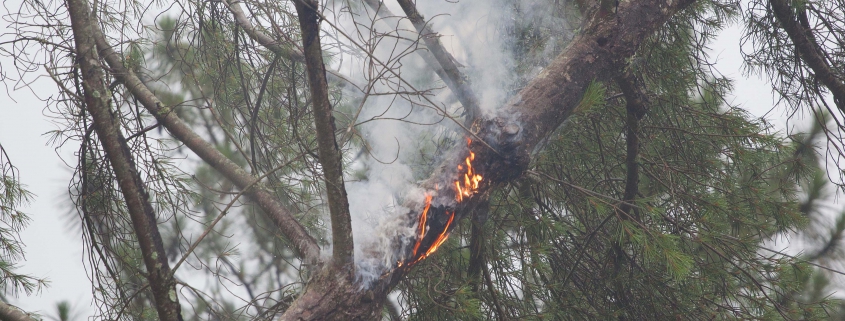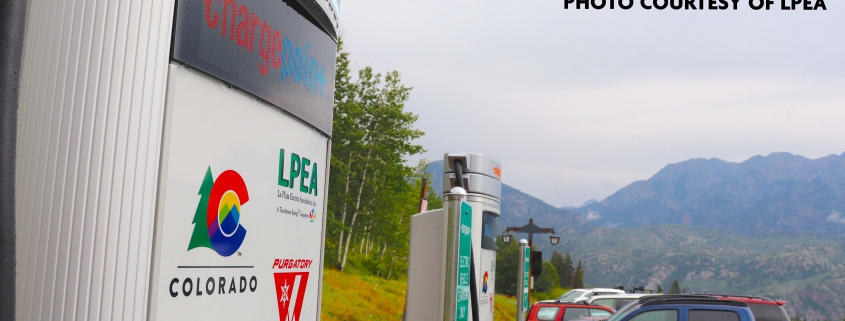Cooperation Among Cooperatives Addresses Wildfire Mitigation
Seeking solutions to be proactive about wildfire prevention and mitigation strategies, San Luis Valley Rural Electric Cooperative looked at Brighton-based United Power’s previous fire mitigation work. The electric co-op based in Monte Vista replaced three-phase line and 34 poles in parts of its service area with Hendrix Aerial Cable. United Power switched its power line to Hendrix Cable in its mountainous Coal Creek Canyon service area in September 2020 and invited SLVREC to review its projects.
Hendrix cable is an insulated conductor and provides a high level of protection in the event that a tree falls onto and makes contact with a power line. With the stronger, covered cable, the risk of wildfire caused by electrical equipment is drastically reduced. Hendrix cable also withstands severe weather events, helping prevent outages if the line is struck by a tree.
This innovative use of collaboration and infrastructure materials offer the benefits of wildfire prevention and improved reliability for co-op consumer-members. And it’s another example of an important cooperative principle at work: cooperation among cooperatives.


